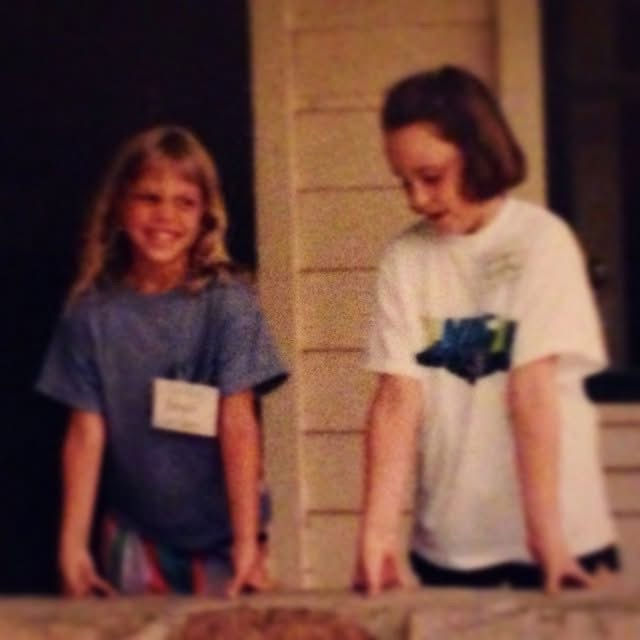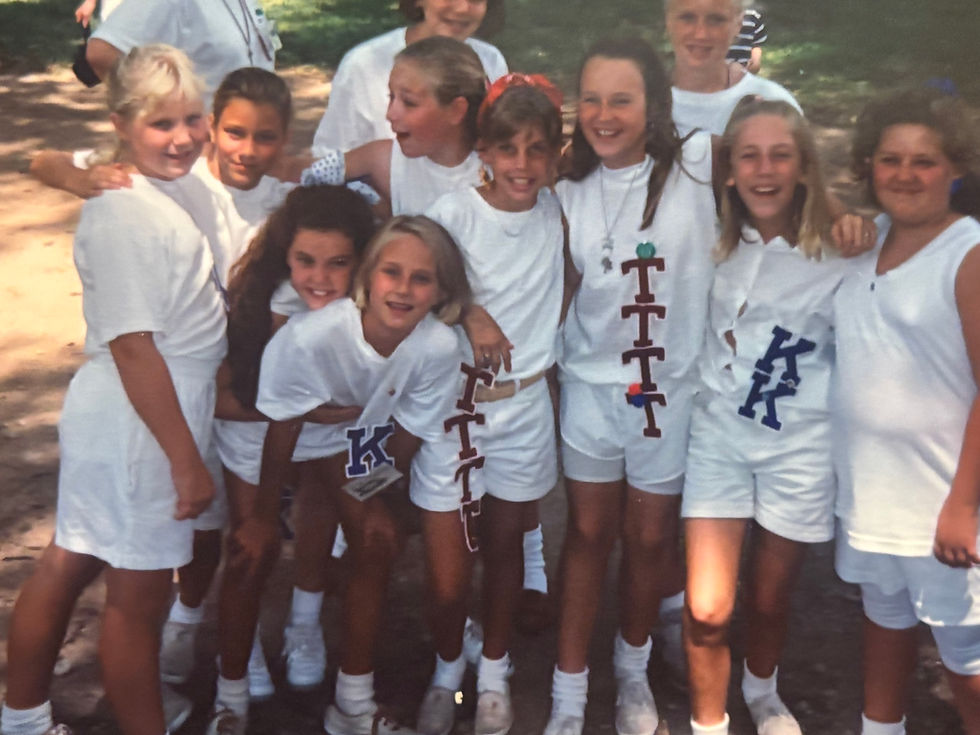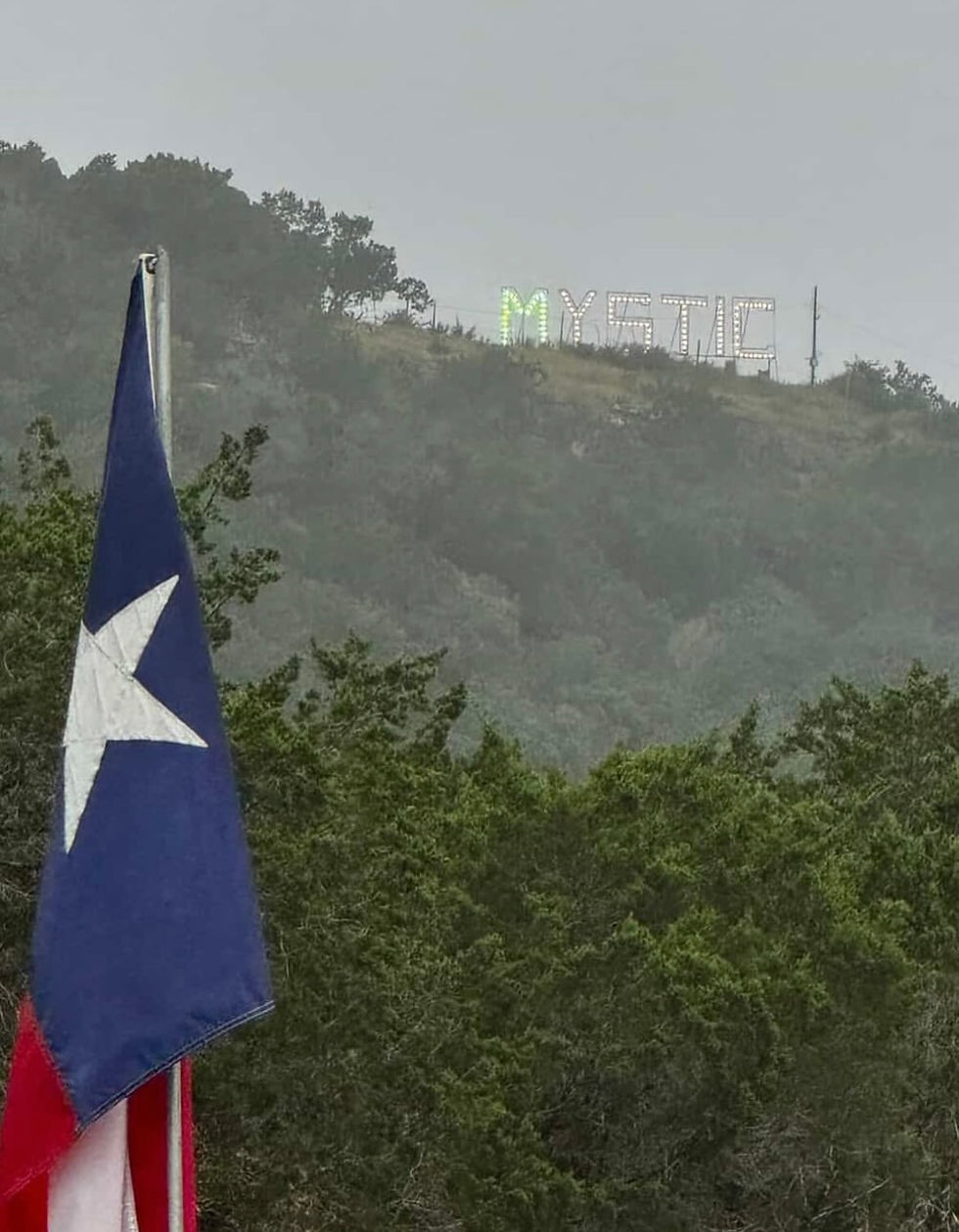Support For Those Affected by the Floods At Camp Mystic
- Mighty Oaks Counseling

- Jul 6, 2025
- 10 min read
Updated: Jul 18, 2025
This blog post is intended for the girls and families affected by the tragedy at Camp Mystic, but please share with others affected. This is an experience we will get through with the love and support of each other. I know this may be a lot of information, so below is the order of this post:
Introduction and My Connection
Put On Your Oxygen Mask First
8 Quick ideas from Sissy Goff, at therapist from Daystar Counseling Ministries
What to expect over the next days, weeks, months, and year
Signals of Distress
Bibliotherapy Suggestions for Grief, Loss, and Scary Experiences
Memorial Ideas for Friends, Family, and Camp Mystic
Pragmatic Suggestions for the Rest of the Summer
The Three Mystic Ideals
Be a better person for being at Mystic
Let Mystic bring out the best in them
Grow spiritually













Introduction and my connection
As a therapist of almost 20 years, I have lived through some difficult experiences and helped guide others through their own. While I wish I was someone that journaled, I have never been able to use the tool for daily purposes. I have found, in the past 5 years, that writing these blogs have been not only therapeutic for me, but also a way for me to feel in control, when everything feels out of control.
Disclaimer: I have written many blog posts, but this is probably my most honest and vulnerable. This will also be coming from a religious perspective. I do not often include my faith in my blog posts, but this is the time for faith, for hope, for love. May my heart and my words be received for healing and support.
I spent 15 summers at Camp Mystic. I started in Twins 1. The youngest of the cabins. I remember being so scared to be away from my parents. My dad sat me down and told me he was scared when he went first to camp, but he made so many friends. To this day, the friends I made at Mystic hold a bond that no other friend can hold. My mom still tells others that when I came back each summer, I was so confident and happy…not that I wasn’t before, but Mystic helped me find my true gifts and love myself exactly as I was.
Unfortunately, we are no strangers to grief and tragedy at Mystic: from Carol Nelson to Hallie Taylor to Alexandra Lacy, to James Eastland, baby James, and Dick Eastland, each of these lives lost too early left a hole in our hearts, but more angels in heaven. And sadly now, the angels have grown even stronger. We are still without answers, as we pray for our mothers, daughters, sisters, and friends.
So, how do you talk to your children? This is for those that have children that were there, and those of us that prayed from the sidelines. The reach of this tragedy is deep and wide, but so is the connection of so many to each other.
Put On Your Oxygen Mask First
Before we even get to how to talk to your children, please check in with yourself and make sure you are processing your feelings, too. Historically, when tragedy or grief hits, I move into comfort/protector/planning mode (you are reading this right now, right?). When I do this, I unintentionally suppress my feelings. Remember that full disclosure? Yesterday, I spent the day checking in, following stories, and worrying if friend’s daughters were still missing. My son, with a typical 3-year-old experience, wanted more milk, than the allotted amount. I broke down. Not tearful. Not crying. Sobbing. The kind of crying we feel with the depths of grief. The kind that comes from the stomach. Thankfully, I was able to communicate a little later about my friends, feeling worried, and not having the words to say what I needed. I share all of this to say that we must take care of ourselves first or at least try to. Many of us that are seeing everything unfold are grieving on multiple levels; our sacred place, our relationships with Dick and Tweety, our childhoods, our lack of safety, the fear for our children; and the worry for our dear friends.
As they say on the airplane: “In case of emergency, please put your oxygen make on first, before helping others”. Easier said than done, but a kind reminder that you are human, and must fill your cup to be able to fill others.
And I pray that you, being rooted and established in love, may have power, together with all the saints, to grasp how wide and long and high and deep is the love of Christ,and to know this love that surpasses knowledge — that you may be filled to the measure of all the fullness of God.— Ephesians 3:17b-19
8 Quick ideas from Sissy Goff, at therapist from Daystar Counseling Ministries
“1. Kids process differently than we do. Follow their lead.
2. Give them chances to connect with each other, whether in person or virtually.
3. Be the source. Give them short, age-appropriate facts.
4. Let them lead the conversation and questions. Kids ask for the information they’re ready for. We often give more than they’re ready for, based on our own anxiety and grief.
5. Don’t try to correct their feelings or comfort them out of those feelings.
6. Give them a chance to tell the story as often as they need to. Just sitting with them is the best comfort you can give.
7. Help them find places where they can help. Pray. Send notes. Make lemonade stands to raise money.
8. They’re potentially going to have a lot of big questions, especially in the faith space. Don’t feel like you have to have answers. None of us do. Take them back to simple truths.”
- Sissy Goff, LPC-MHSP
It is okay to ask others for help. Especially as mothers, grandmothers, aunts, and sisters that attended Mystic ourselves, we are also grieving our precious, sacred place. You do not have to have all the answers, and it is okay to say “I wish I knew the answer. I feel sad, too. Let’s think about it together or let me think about it and get back to you in a bit. I want to make sure I have the words I need”.
“While faith and hope are important, love is the greatest of the three.” - 1 Corinthians 13:13
What to expect over the next days, weeks, months, and year
We will all process this event differently. Young children may not know the full depth of what their sisters experienced. An adult may have already dealt with several traumatic experiences in their life. The girls and counselors that were there may suppress the experience, as they are still in fight or flight mode.
So what are some things to expect for our campers and counselors that were there, as well as yourself as a parent, grandparent, aunt, uncle, cousin, brother, sister…
Keep in mind that trauma and grief show up differently at different times
· It may be at the next holiday, when we are missing someone
· It may be next year, on the anniversary of this tragedy
· It may be because of a noise, or the start of a thunderstorm that brings it up
· It may be the helicopters flying over our homes, bringing someone to the nearby hospital
· It may be seeing photos, camp shirts, or even a certain smell. This morning, I walked out of my house, and the grass smelled so much like the golf course at Camp Mystic. And who else has the same reaction to the smell of cedar, like so many of our trunks?
As adults, we may not logically get what is going on, but our bodies and children’s bodies hold onto the memories and feelings through our senses and nervous system.
Approach this all with a sense of noticing, even of yourself. Do you notice that you jump at a certain noise? Do you notice, or does your child notice a feeling of happy or sad, when a song comes on the radio. Approach these experiences with openness and acceptance, as that is how we learn and heal.
Grief and trauma are not linear. We may revisit certain experiences again and again, until we feel we have worked through them, or have found peace with the experience.
“Trust in the Lord with all your heart; do not depend on your own understanding. Seek his will in all you do, and he will show you which path to take.” – Proverbs 3: 5-6
Signals of Distress
As we move forward, it is important to check in with yourself and your child with any change of mood, or temperament. This is common as we begin to process things, but if it feels different and more intense, listen to your gut about the change. As we process this event, it is common to be in shock, experience denial, feel angry, try to bargain, and be incredibly sad.
So, what do we need to look out for? If your child is normally outgoing, and then suddenly withdrawal, or if they are quiet and start engaging in risk-taking behavior, this may be a sign of internal struggle.
Girls especially demonstrate discomfort with their somatic systems, before being able to share their feelings. Common symptoms, that occur in a regular basis, include
Stomach aches
Headaches
Restlessness
Shortness of breath (big sighs or holding their breath)
Body aches
Other things you may look out for
Under, or overeating eating
Nightmares
Nail biting
Hair pulling
Nighttime bathroom accidents when previously successful
Regression in language or behavior (even teens can use baby talk or a “childlike voice” when experiencing discomfort)
Suddenly being secretive
Wearing long sleeves, when it is hot outside
If you find that these signs are happening in your home, please let me know. I have created a list of over 200 mental health therapists in Texas who are ready to help.
“Be strong and courageous. Do not be afraid; do not be discouraged, for the Lord your God will be with you wherever you go.” - Joshua 1:9
Bibliotherapy Suggestions for Grief, Loss, and Scary Experiences
While some of these books are about grief of persons, they can also be used to help us process the loss of the camp and experiences we knew. Included in each section are also books to process the trauma we are collectively experiencing.
Young Children and Elementary
The Invisible String by Patrice Karst
This is a great book for attachment, or fear of being away from those we love. It also has a great workbook for older elementary children
When Dinosaurs Die: A Guide to Understanding Death by Laurie Krasny Brown and Marc Brown
I Miss You: A First Look at Death by Pat Thomas
Remembering Crystal by Sebatian Loth
The Rabbit Listened by Cori Doerrfeld
Samantha Jane's Missing Smile by Julie Kapnow and Donna Pincus
When Someone Very Special Dies: Children Can Learn to Cope with Grief by Marge Heegaard
The Memory Box: A Book About Grief by Joanna Rowland
A Terrible Thing Happened by Margaret M. Holmes and Sasha J. Mudlaff
King and the Dragonflies by Kacen Callender
The List of Things That Will Not Change by Rebecca Stead
Everywhere, Still: A Book About Loss, Grief, and the Way Love Continues by M.H. Clark
Teens
Angel Cather for Kids by Amy Eldon
All the Blues in the Sky by Renee Watson
RIP Corey: My Fried Died and It Sucks by Chris Buchanan
Passed and Present: Keeping Memories of Loved Ones Alive by Allison Gilbert
Torn Away by Jennifer Brown
Crying in H Mart by Michelle Zauner
Adults
Daily Prayers for Grieving Hearts by DaySpring
Bearing the Unbearable: Love, Loss, and the Heartbreaking Path of Grief by Dr. Joanne Cacciatore and Jeffrey Rubin
It’s Not Supposed to Be This Way by Lysa TerKeurst
Winter of the Heart by Paula D’Arcy
Angel Catcher: A Grieving Journal by Dan Eldon
"May the Lord bless you and keep you. May the Lord make His face shine on you and be gracious to you. May the Lord look upon you with favor and give you peace." — Numbers 6:24-26
Memorial Ideas for Friends, Family, and Camp Mystic
We all remember painting stones in Arts and Crafts. Maybe you can paint rocks or create mosaic steppingstones for your yard. The steppingstone kits can be found at any arts and craft store.
Other ideas for remember friends, family, and Camp Mystic in general include
· Candle lighting
· Lantern/balloon release
· Planting a Tree
· Donating and volunteering
· Make Tweety Cookies
· Scrapbook
· Make a memory jar
· Share your most loved experiences
· Check in with each other
You can also sing Mystic songs to heal your hearts. Years ago, James sent me the Mystic songbook. James sent me a copy years ago, if anyone needs it.
“Even though I walk through the darkest valley, I will fear no evil, for you are with me; your rod and your staff, they comfort me.” - Psalm 23:4
Pragmatic Suggestions for the Rest of the Summer
Try to stick to a routine as much as possible. This is hard during the summer but remember consistency will help everyone feel secure and safe. Get dressed like you would during this school year. Get outside. Find joy. Continue talking about it. The more you share feelings with each other, the more empowered will feel. Pray. Encourage children when they are managing the changes. Help them know you notice them.
A final reminder, as we experience all our feelings, the girls that survived will live with immense grief, but also feelings of guilt for being the ones that got out. As parents, we may feel this, too. It is normal to question why, and how God could “let” tragedy happen to one family, but not another.
“A bell is not a bell
until you ring it.
A song is not a song
until you sing it.
The love in your heart
was not put there to stay.
Love is not love
until you give it away.”
Thank you, Camp Mystic for the love you have given us all. Remember friends, you are not alone. The connection we have to each other will never be lost or broken, because Mystic is not a physical place, but a place in our hearts here on earth and in heaven.
“Good night, Camp Mystic. WE LOVE YOU”
With love, Dr. Sarah



Comments